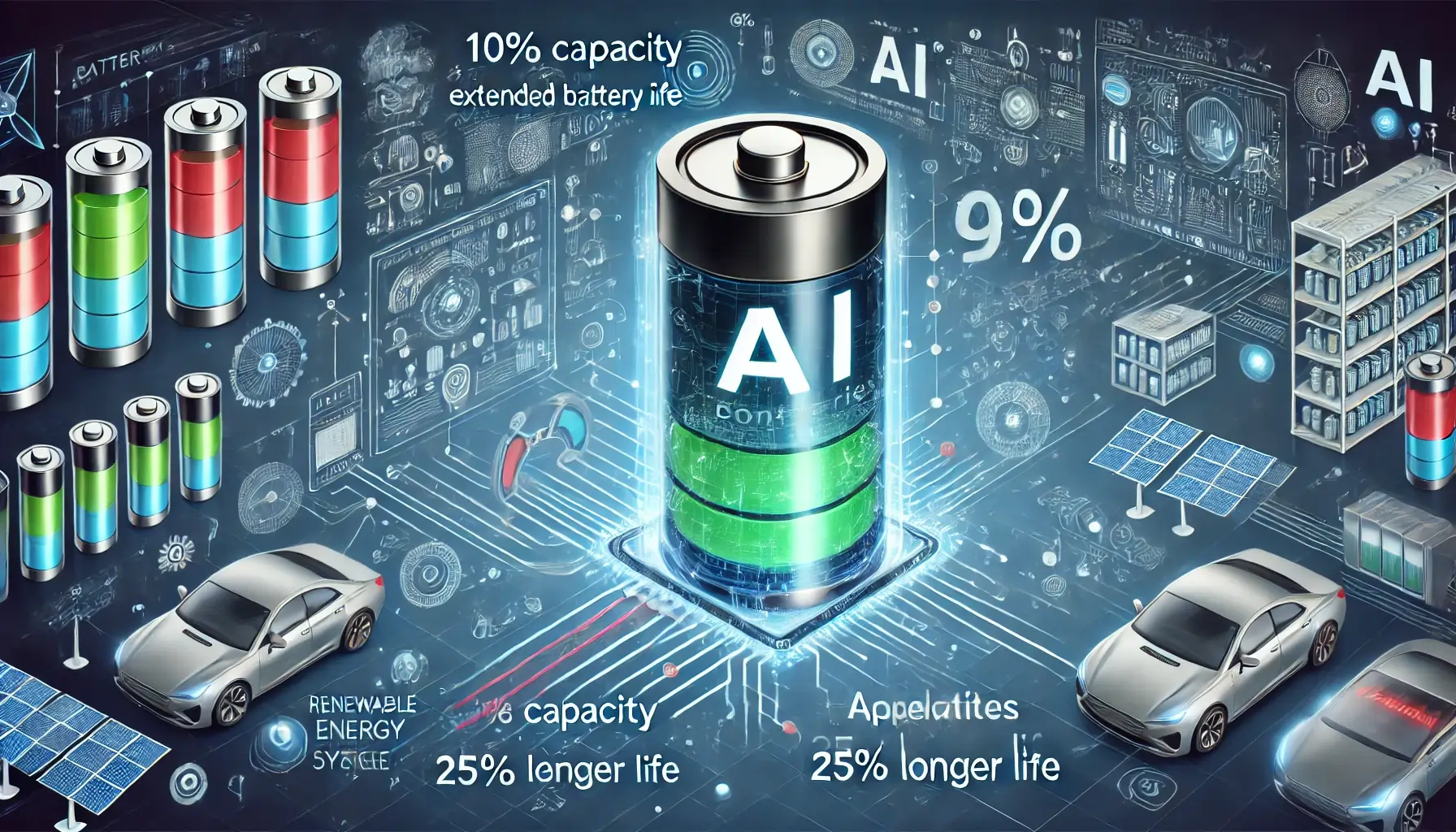The future of energy storage is here, and it’s being driven by artificial intelligence (AI). Researchers have developed an Artificial Intelligence-controlled battery management system that can unlock 10% more capacity and extend battery life by 25%. This innovation, detailed in a recent article on New Atlas, promises to revolutionize the way we use and manage batteries, enhancing their efficiency and lifespan.

The Power of Artificial Intelligence in Battery Management
Battery technology is critical to many aspects of modern life, from powering our smartphones and laptops to enabling electric vehicles (EVs) and storing renewable energy. However, traditional battery management systems (BMS) often fall short in optimizing battery performance and longevity. This is where AI steps in.
For more blogs like this please visit: sleeping sirens
How Artificial Intelligence Enhances Battery Performance
The AI-controlled battery management system utilizes advanced algorithms to monitor and manage battery performance in real-time. Here’s how it works:
- Real-Time Monitoring: The Artificial Intelligence system continuously monitors various parameters, such as temperature, charge levels, and usage patterns. This real-time data collection allows for precise management of the battery’s health and performance.
- Predictive Analysis: By analyzing historical data and current conditions, the Artificial Intelligence can predict future battery behavior. This predictive capability enables proactive adjustments to prevent issues before they occur.
- Optimized Charging and Discharging: The Artificial Intelligence optimizes charging and discharging cycles to ensure the battery operates within optimal parameters, thus preventing overcharging and deep discharging, which are common causes of battery degradation.
Key Benefits of Artificial Intelligence-Controlled Batteries
- Increased Capacity: The Artificial Intelligence system can unlock up to 10% more capacity from the same battery, providing more power and extending the range of EVs or the runtime of electronic devices.
- Extended Battery Life: By managing the battery more effectively, the Artificial Intelligence can extend its lifespan by up to 25%. This means fewer battery replacements, reducing costs and environmental impact.
- Improved Safety: The real-time monitoring and predictive analysis capabilities of the AI system enhance battery safety by preventing overheating and other issues that can lead to battery failure or even fires.
Applications and Implications
The integration of AI into battery management has far-reaching implications for various industries and applications:
1. Electric Vehicles (EVs)
For EVs, improved battery performance translates into longer driving ranges and reduced charging times. This breakthrough could accelerate the adoption of electric vehicles by addressing one of the primary concerns of potential buyers—range anxiety.
2. Consumer Electronics
In consumer electronics, AI-controlled batteries can provide longer-lasting devices, reducing the frequency of charging and extending the overall lifespan of gadgets like smartphones, laptops, and tablets.
3. Renewable Energy Storage
For renewable energy systems, efficient battery management is crucial for storing and distributing energy from sources like solar and wind. AI-controlled batteries can enhance the reliability and efficiency of these storage systems, promoting the broader adoption of renewable energy.
The Future of Artificial Intelligence in Energy Storage
The development of AI-controlled battery management systems marks a significant advancement in energy storage technology. As AI continues to evolve, we can expect further improvements in battery performance, safety, and longevity. This innovation not only enhances the user experience but also supports sustainability efforts by reducing electronic waste and promoting the use of renewable energy.
For more detailed information on this groundbreaking research, you can read the full article on New Atlas here.
More blogs: https://sleepingsilent.com

